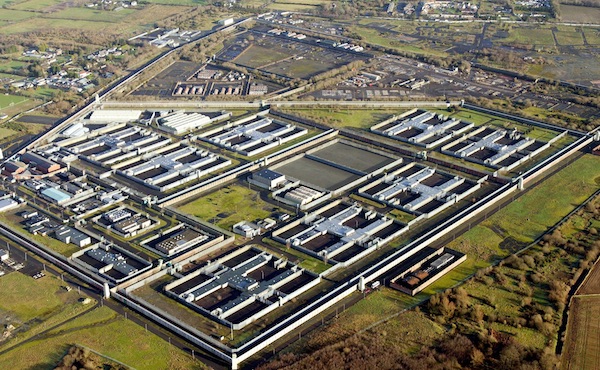
Information passed by prison chaplains to the Dublin government in 1990 that the Provisional IRA did not want Sinn Féin directly involved in negotiations with the British government about a ceasefire was misinterpreted in state papers released in Dublin this week.
A message from a senior Irish official to his colleagues in the 26 County Department of Foreign Affairs was contained in a file released by the National Archives in Dublin. It was one of a number of documents chosen for declassification this year by the Dublin government.
One of the first stirrings of the peace process was conveyed by the communication of 4 May, 1990, by Brendan McMahon, head of the Anglo Irish Division.
According to the memo, the two chaplains at Long Kesh prison, Rev Will Murphy and Fr John Murphy, had been in talks with republican leaders in the H-Blocks. Their message had said that the leadership of the IRA did not want to involve Sinn Féin in peace talks.
The memo for the 26 County Department of Foreign Affairs was passed on as a report on a discussion with the IRA Army Council.
In the case that direct negotiations with the British were refused, talks involving Sinn Féin was mentioned as a fall-back “least favoured” option, according to the chaplains.
This was in keeping with the desire of the IRA at the time for a military armistice and a negotiated settlement. It also took into account the distinction between the IRA and Sinn Féin, who were still marginalised and censored as the ‘political wing of the IRA’.
However, the two clergymen apparently believed it was more significant, even characterising it as a potential power struggle within the Provisional movement.
“Fr Murphy commented that one thing which has struck him in the course of this initiative is the noticeable difference between the IRA and Sinn Féin - with Army Council members referring to Sinn Féin as merely ‘the party which is the closest to our view’,” the memo noted.
“Murphy’s impression is that not all of the Army Council are particularly enamoured with the socialist views being espoused by the current urban-based leadership of Sinn Féin.”
The so-called ‘chaplain’s initiative’ or ‘back channel’ helped to launched intense political efforts in Dublin, according to the papers declassified there. However, British archives on the discussions are set to remain closed until 2040.
![[Irish Republican News]](https://republican-news.org/graphics/title_gifs/rn.gif)
![[Irish Republican News]](https://republican-news.org/graphics/title_gifs/harp.gif)

